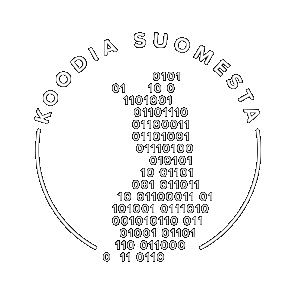There are many sayings in the Finnish language, some of which have stood the test of time and others of which there are many opinions today. Silence is gold, speech is silver. This is wisdom if silence means listening without rushing to speak over others. On the other hand, it is important to speak up, and I think that there are very few things that are improved by silence, whether in one's private life or at work.
But what matters is how you put it into words. SmoothTeam's simulations are designed to help you put things into words. As a facilitator of the simulations, I have been involved in many important moments where the discussion has generated new insights within the team. I will now focus on a few moments that have stuck in my mind along the way. The details have been suitably rounded to protect the privacy of our clients, the events are as I saw and experienced them.
Is movement more important than direction - the many facets of decision-making
The pale autumn sun is silhouetted against the yellow leaves. It warms the back of my shirt as I walk down the gentle slope of Haikko Manor. The client team has been working on its strategy since yesterday, and today it's time for another simulation. It will make team members' strengths visible and hear how others perceive theirs. We immerse ourselves in the simulation, and the conversations that take place during the afternoon leave a lasting impression - a sense of being open about the real issues that matter to this team.
I will raise here one of the topics of discussion. The story of the simulation took us on a shopping trip where one of the team had to be selected to do some quick shopping to get some evening snacks to the hotel. Each person chose who on the team liked to make quick decisions and get things done quickly. When the visualisation came up after the responses, it was seen that all team members were inherently quick decision makers. The first reaction was a burst of laughter, followed by the comment that this is what we are all about, getting decisions quickly and then getting things done. Good on us!
But when we stopped to consider the theme, new perspectives emerged from the background. How does rapid decision making and execution translate into the day-to-day life of a team: is movement more important than direction? How does the team handle disagreements? What happens if someone raises a point: are you sure that all the most important points of view have been taken into account now, should you take another step back? Could we also benefit from diversity in this aspect, and on the other hand, could we not run down a different member, could we use diversity as a strength? There are many sides to the old adage. Even more than two. Visualising things clearly helped the team to realise new perspectives on their work.
How to be appreciative and constructively critical?
It's snowing. Relieved, I push my large facilitating bags into the dry shelter of the stairwell. Up with my poles and into the warm atmosphere of the circle of chairs. I lead the group into the secrets of the simulation and soon take on the role I had been seeking as an observer, guiding the team with probing questions if necessary. In the early part of the simulation, the team is faced with a situation where each team member nominates one of them as the best person to look at things critically. After the nomination, we get to see the photographer, and the team laughs about how anyone could have been nominated at this point. Criticism is seen as a particular strength of the team.
Soon, the debate takes on a new tone. Are new ideas being killed off in tiny sprouts by over-criticism? Do we dare to experiment quickly as a team? Does criticality lead to a lack of courage to do new things because the possibility of failure is too strong? As a critical team, how do we show trust and respect for each other? Important questions that led to an impressive debate and also to concrete conclusions for the future. During the outcome workshop, the team developed a structure for collaboration that clearly separates the brainstorming phase from the decision-making phase. Criticism is not allowed in the brainstorming phase, but input is put into enriching the ideas of others. It is only in the decision-making phase that more critical perspectives are brought forward.
Stopping creates trust
There is no strength that cannot turn into a weakness or a challenge, nor a weakness or a challenge that, if consciously acknowledged, could not also be a strength. Developing teamwork does not always mean going out to sea to fish. Sometimes a day of time together in the office - or remotely - dedicated to discussion, sharing and building trust is enough. SmoothTeam's simulation is one way to quickly get to the issues that matter to your team. Is it time to talk?


